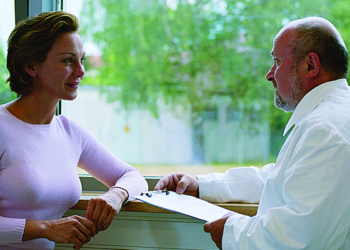Smartphone-based self-management intervention may decrease relapses for patients with Bipolar Disorder Type 1
1. In patients with Bipolar Disorder Type 1, a smartphone-based self-management intervention decreased relapse risk in individuals in asymptomatic recovery but not in those with a higher relapse risk.
Evidence Rating Level: 1 (Excellent)
Bipolar disorder, characterized by episodes of mania and depression, is a severe mental illness that causes significant disability even with appropriate pharmacological therapy. While evidence suggests that dual treatment with psychotherapy and pharmacotherapy is ideal in improving relapse risk and symptom burden, access to this is limited. Smart phone-based interventions provide a means for individuals to access self-management strategies derived from present bipolar disorder psychotherapy; however, the exact effect of this is unknown. In this randomized controlled trial, 205 adults with an established diagnosis of bipolar disorder type 1 who were receiving mental health care from a psychiatrist, were randomized to either the intervention group or control group and stratified based on their risk of relapse. Individuals assigned to the smart phone intervention group used an app over a period of 16 weeks which provided adaptive feedback and information for developing a personalized wellness plan and additionally visited a coach for support. The primary outcomes of this study were time to relapse, and quality of life measured by the World Health Organization (WHO) Quality of Life (QOL) questionnaire. The results of this study showed that time to relapse was longer in the intervention group compared to the control group in the low-risk group (HR 0.32, 95%CI 0.47-1.57) than the high-risk group (HR 0.86, 95%CI 0.47-1.57). Additionally, there was no difference in quality-of-life scores between the two groups. In conclusion, this paper did not observe a difference in relapse of a mood episode amongst the smart phone-based self-management group. However, in individuals with a lower risk of relapse to begin with, the relapse risk was lower with the smartphone intervention. This study had several limitations that must be taken into consideration. A significant portion of the sample was Caucasian participants so the generalizability of these findings may be limited. Nevertheless, as this study does demonstrate some benefit of smartphone interventions in those at a lower risk for relapse, further research into this area may be beneficial.
Click to read the study in JAMA Psychiatry
Image: PD
©2022 2 Minute Medicine, Inc. All rights reserved. No works may be reproduced without expressed written consent from 2 Minute Medicine, Inc. Inquire about licensing here. No article should be construed as medical advice and is not intended as such by the authors or by 2 Minute Medicine, Inc.







